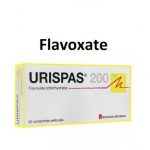Contents
How Harmful Is TBHQ?
TBHQ is a food additive that removes oxygen from fat and oil molecules, keeping food fresh. It is safe in amounts allowed by the FDA.
You may find TBHQ listed on the labels of pantry staples as it has been used for years to preserve food safety and quality.
In recent years, concerns have been raised about the potential health risks of TBHQ. However, it is safe when consumed in recommended amounts. If you wish to reduce your intake, consider products with natural alternatives.
Oxidation causes food to lose quality, flavor, color, and nutritional content. TBHQ removes oxygen from fat and oil, keeping food fresh.
TBHQ stands for tertiary butylhydroquinone and is an artificial compound used as a food additive due to its low cost, solubility, stability, effectiveness, lack of impact on food properties, and antimicrobial and antioxidant effects.
TBHQ is often found together with another compound called butylated hydroxyanisole (BHA) as they are closely related.
Where can you find TBHQ?
TBHQ is commonly used as an antioxidant in animal fats, vegetable oils, and various food products that need preservation, such as edible oils, soft drinks, cereals, packaged dinners, processed foods, frozen fish products, and dairy products.
TBHQ is also used as an antioxidant in skincare products, pharmaceutical products, certain pet food varieties, and cosmetics.
Is it safe to use products with TBHQ?
TBHQ has been approved as safe by the FDA and other global health organizations in specific amounts.
Some approved amounts of TBHQ in various countries are China (200 mg/kg), Australia (200 mg/kg), USA (200 mg/kg), Brazil (200 mg/kg), and Iran (120 mg/kg).
The Environmental Working Group rates the use of TBHQ in skincare products as “1 to 2” (very low hazard).
How much TBHQ is safe for use?
The FDA states that TBHQ content in food should not exceed 0.02% of the product’s total oil and fat content. Higher amounts have not been proven safe.
International bodies like JEFSA, FDA, and EFSA have approved a daily intake of t-butylhydroquinone not exceeding 0.7 mg/kg body weight.
The average daily intake of TBHQ varies by country.
QUESTION:
What are the potential risks of TBHQ?
Research shows that long-term or high-dose consumption of TBHQ can cause chronic and nutritional disorders.
TBHQ has contradictory effects on cancer, with some studies showing it prevents cancer cells from growing, while others suggest a link between high intake and increased tumor risk.
TBHQ can cause food allergies and worsen hypersensitivity symptoms.
Regular intake of TBHQ can lead to neurological symptoms such as vision disturbances, paralysis, and convulsions.
How can you control your intake of TBHQ?
Avoid foods with TBHQ by checking labels for ingredient names such as TBHQ, t-butylhydroquinone, tert-butylhydroquinone, tertiary butylhydroquinone, and butylated hydroxyanisole. Also, avoid foods with unhealthy fats and vegetable oils.
Opt for natural antioxidants found in clove oil, cinnamon oil, sunflower oil extracts, green tea extracts, sesame oil extracts, olive extracts, rosemary extracts, and broccoli sprout extract.
Sources:
Best Food Facts: “TBHQ: What is it and is it dangerous?”
Biochemical Pharmacology: “Differential effects of the Nrf2 activators TBHQ and CDDO-Im on the early events of T cell activation.”
Carcinogenesis: “Modification of carcinogenesis by alpha-tocopherol, t-butylhydroquinone, propyl gallate and butylated hydroxytoluene in a rat multi-organ carcinogenesis model,” “Nrf2 enhances resistance of cancer cells to chemotherapeutic drugs, the dark side of Nrf2.”
Center for Science in the Public Interest: “TBHQ (tert-butylhydroquinone).”
Current Drug Metabolism: “Chemoprotective and carcinogenic effects of tert-butylhydroquinone and its metabolites.”
Environmental Working Group: “T Butyl Hydroquinone.”
Food Insight: “What Is TBHQ, and What Does It Do in Our Food?”
International Programme on Chemical Safety: “EVALUATION OF NATIONAL ASSESSMENTS OF INTAKE OF tert-BUTYLHYDROQUINONE (TBHQ).”
Journal of Food Science and Technology: “Application and stability of natural antioxidants in edible oils in order to substitute synthetic additives.”
The Journal of Immunology: The Nrf2 activator, TBHQ, exacerbates immediate hypersensitivity response to food allergen (HYP7P.315).”
Toxicology Reports: “Alarming impact of the excessive use of tert-butylhydroquinone in food products: A narrative review”
Toxicology Reports: “Alarming impact of the excessive use of tert-butylhydroquinone in food products: A narrative review”


